Discover the top 5 weight loss surgeries to help you lose 20 kilos in just 3 months. Learn about the benefits, risks, and recovery process for each procedure.
Introduction
Are you struggling to shed those extra kilos despite rigorous dieting and exercise? You’re not alone. Millions of people worldwide face the same challenge, and for some, weight loss surgery offers a viable solution.
In this comprehensive guide, we’ll explore the top 5 weight loss surgeries that can help you lose up to 20 kilos in just 3 months.
Whether you’re considering surgery or just curious about your options, this article will provide you with all the information you need to make an informed decision.
Why Consider Weight Loss Surgery?

Top 5 Ayurvedic Treatments in India – Cure Chronic Diseases Naturally!
Weight loss surgery, also known as bariatric surgery, is not just about losing weight; it’s about improving your overall health.
Obesity is linked to numerous health conditions, including diabetes, heart disease, and sleep apnea. For many, surgery is a life-changing decision that can lead to significant health improvements.
Benefits of Weight Loss Surgery
- Rapid Weight Loss: Achieve significant weight loss in a short period.
- Improved Health: Reduce the risk of obesity-related diseases.
- Enhanced Quality of Life: Boost self-esteem and physical mobility.
Risks and Considerations
- Surgical Risks: As with any surgery, there are risks involved.
- Lifestyle Changes: Permanent changes to diet and exercise are necessary.
- Cost: Surgery can be expensive, and insurance coverage varies.
Top 5 Weight Loss Surgeries
1. Gastric Bypass Surgery
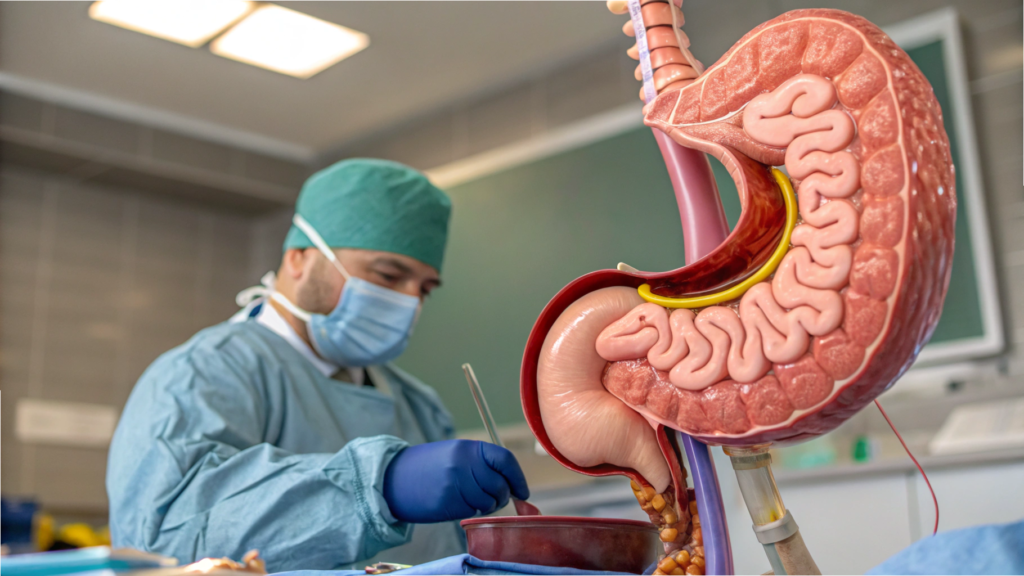
Overview:
Gastric bypass surgery is one of the most common and effective weight loss surgeries. It involves creating a small pouch at the top of the stomach and connecting it directly to the small intestine, bypassing a large portion of the stomach and duodenum.
Benefits:
- Rapid Weight Loss: Patients can lose up to 60-80% of their excess weight within the first year.
- Improved Health: Significant improvement in conditions like diabetes and hypertension.
Risks:
- Nutritional Deficiencies: Requires lifelong vitamin and mineral supplements.
- Surgical Complications: Risk of infection, blood clots, and leaks.
Recovery:
- Hospital Stay: 2-3 days
- Full Recovery: 3-5 weeks
2. Sleeve Gastrectomy
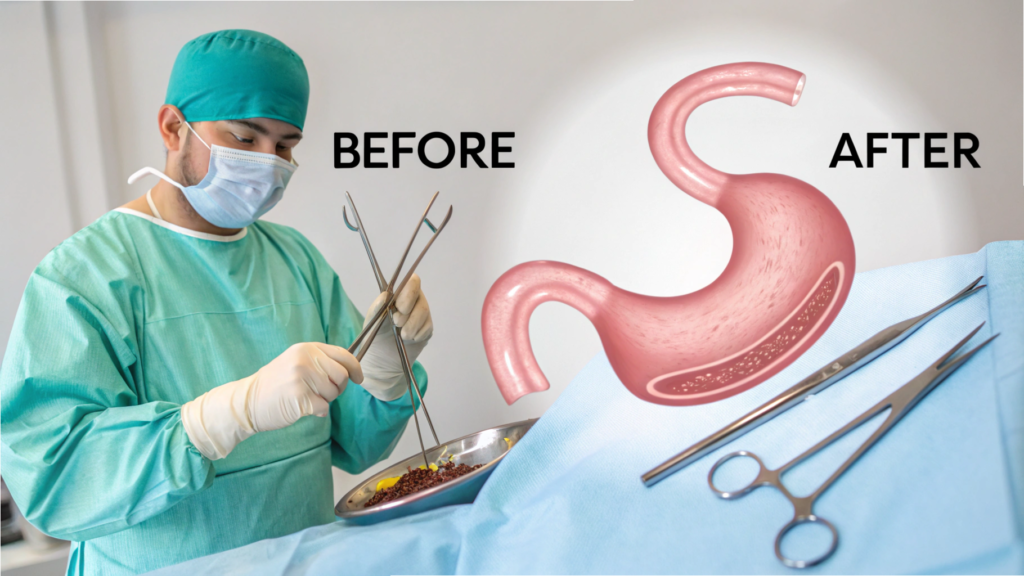
Overview:
Sleeve gastrectomy involves removing approximately 80% of the stomach, leaving a tube-shaped stomach about the size of a banana. This limits the amount of food you can eat and reduces hunger hormones.
Benefits:
- Effective Weight Loss: Patients can lose 50-70% of their excess weight within the first year.
- No Foreign Objects: Unlike gastric banding, there are no devices left in the body.
Risks:
- Irreversible: The procedure cannot be reversed.
- Leakage: Risk of leaks along the staple line.
Recovery:
- Hospital Stay: 1-2 days
- Full Recovery: 2-4 weeks
3. Adjustable Gastric Banding
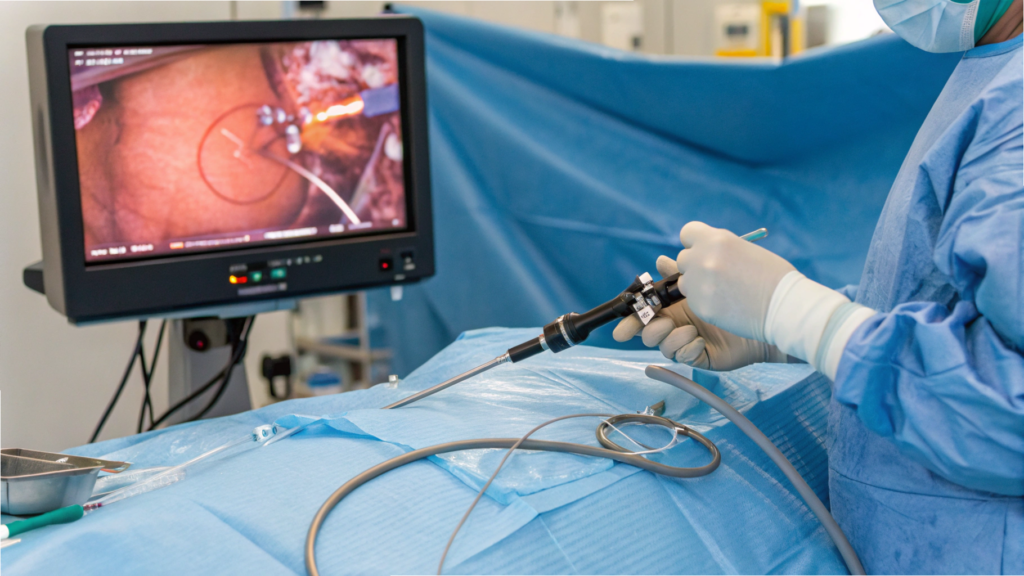
Overview:
Adjustable gastric banding involves placing an inflatable band around the upper part of the stomach, creating a small pouch. The band can be adjusted to control the amount of food intake.
Benefits:
- Minimally Invasive: Laparoscopic procedure with minimal scarring.
- Reversible: The band can be removed if necessary.
Risks:
- Slower Weight Loss: Weight loss is generally slower compared to other surgeries.
- Band Slippage: Risk of the band slipping out of place.
Recovery:
- Hospital Stay: Usually outpatient
- Full Recovery: 1-2 weeks
4. Biliopancreatic Diversion with Duodenal Switch (BPD/DS)
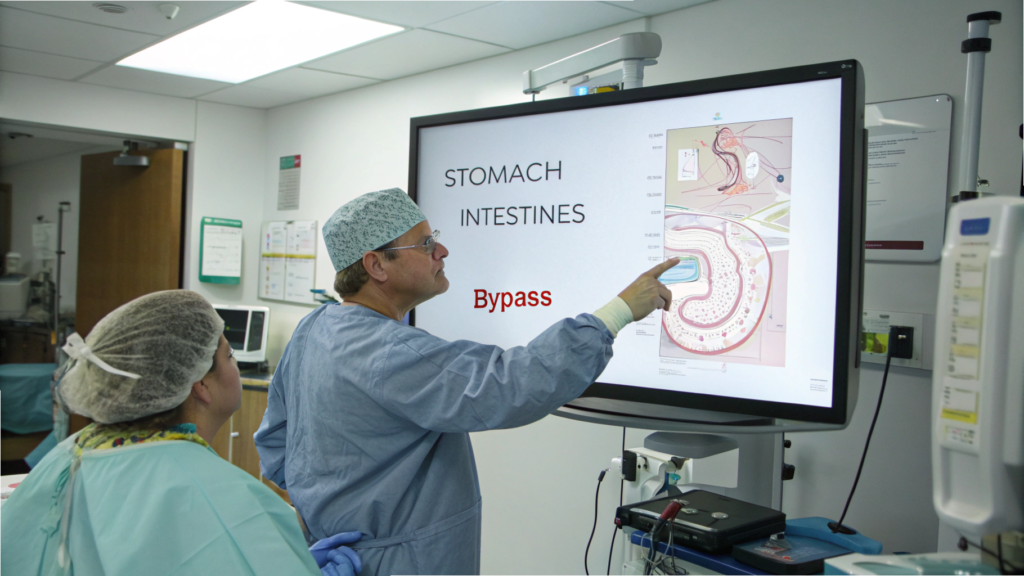
Overview:
BPD/DS is a more complex procedure that involves two components: a sleeve gastrectomy and an intestinal bypass. This surgery not only restricts food intake but also reduces nutrient absorption.
Benefits:
- High Weight Loss: Patients can lose 70-80% of their excess weight.
- Effective for Severe Obesity: Ideal for those with a BMI over 50.
Risks:
- Nutritional Deficiencies: High risk of deficiencies requiring lifelong supplements.
- Complex Surgery: Higher risk of complications.
Recovery:
- Hospital Stay: 3-5 days
- Full Recovery: 4-6 weeks
5. Intragastric Balloon
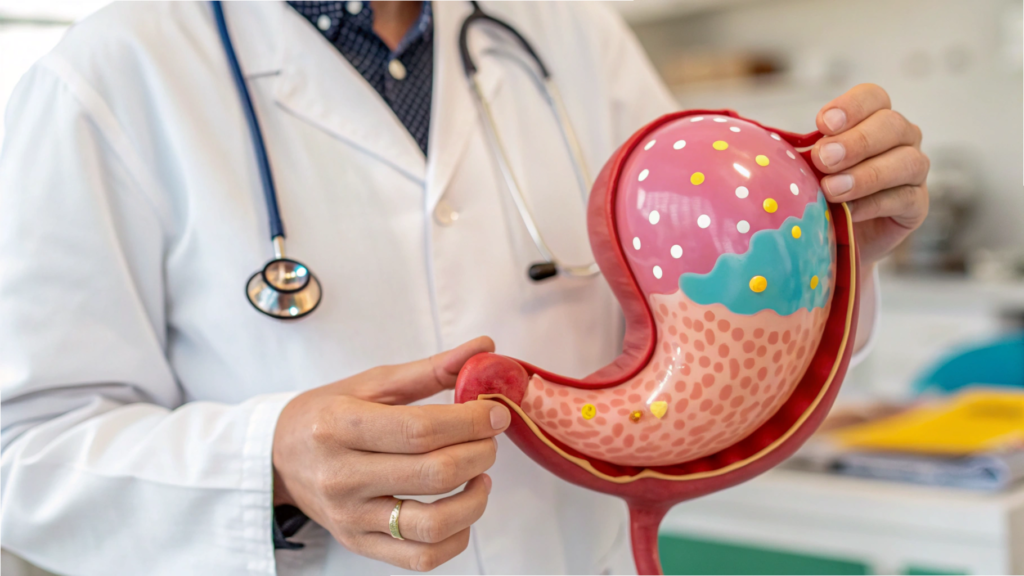
Overview:
The intragastric balloon is a non-surgical procedure where a balloon is placed in the stomach and filled with saline to reduce the amount of food you can eat.
Benefits:
- Non-Surgical: No incisions or scars.
- Temporary: The balloon is removed after 6 months.
Risks:
- Limited Weight Loss: Generally less effective than surgical options.
- Balloon Deflation: Risk of the balloon deflating and causing a blockage.
Recovery:
- Hospital Stay: Usually outpatient
- Full Recovery: 1-2 days
Comparison Table: Top 5 Weight Loss Surgeries
| Surgery Type | Weight Loss Potential | Recovery Time | Risks | Best For |
|---|---|---|---|---|
| Gastric Bypass | 60-80% excess weight | 3-5 weeks | Nutritional deficiencies | Those with severe obesity |
| Sleeve Gastrectomy | 50-70% excess weight | 2-4 weeks | Irreversible, leakage | Those needing significant loss |
| Adjustable Gastric Banding | 40-50% excess weight | 1-2 weeks | Slower weight loss, slippage | Those preferring minimally invasive |
| BPD/DS | 70-80% excess weight | 4-6 weeks | High risk of deficiencies | Those with BMI over 50 |
| Intragastric Balloon | 20-30% excess weight | 1-2 days | Limited weight loss, deflation | Those seeking non-surgical option |
FAQs
1. What is the most effective weight loss surgery?
The most effective weight loss surgery in terms of rapid and significant weight loss is the Biliopancreatic Diversion with Duodenal Switch (BPD/DS).
2. How long does it take to recover from weight loss surgery?
Recovery time varies by procedure, ranging from 1-2 days for non-surgical options like the intragastric balloon to 4-6 weeks for more complex surgeries like BPD/DS.
3. Are there non-surgical weight loss options?
Yes, non-surgical options like the intragastric balloon are available, though they generally result in less weight loss compared to surgical options.
4. What are the risks of weight loss surgery?
Risks include nutritional deficiencies, surgical complications, and the need for permanent lifestyle changes.
5. Will insurance cover weight loss surgery?
Coverage varies by insurance provider and country. It’s best to consult with your insurance company to understand your specific coverage.
6. How much weight can I expect to lose with surgery?
Weight loss varies by procedure, but most patients can expect to lose 50-80% of their excess weight within the first year.
7. Is weight loss surgery reversible?
Some procedures, like adjustable gastric banding, are reversible, while others, like sleeve gastrectomy, are not.
Conclusion
Weight loss surgery can be a life-changing decision, offering not just rapid weight loss but also significant health improvements.
Whether you opt for a surgical procedure like gastric bypass or a non-surgical option like the intragastric balloon, it’s crucial to weigh the benefits and risks carefully.
Consult with a healthcare professional to determine the best option for your specific needs and circumstances.
If you found this article helpful, please share it with others who might benefit. Have questions or experiences to share? Leave a comment below or explore our related articles for more information on weight loss and health improvement.
